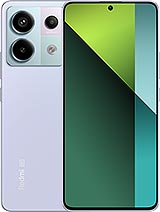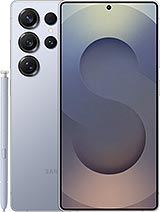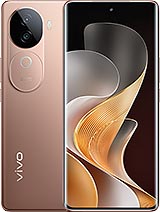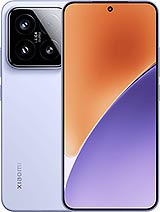Vivo V40e alternatives
Tap above to see alternatives.
Xiaomi 15 alternatives
Tap above to see alternatives.
2x4.32 GHz Oryon V2 Phoenix L
6x3.53 GHz Oryon V2 Phoenix M
8GB 256GB (UFS 2.2)
f/2.0, (wide), 1/1.95", 0.8µm, PDAF, OIS
8 MP
f/2.2, 116˚ (ultrawide)
f/1.6, 23mm (wide), 1/1.31", 1.2µm, OmniVision Light Fusion 900, dual pixel PDAF, OIS
50 MP
f/2.0, 60mm (telephoto), 1/2.76", 0.64µm, S5KJN5, PDAF (10cm - ∞), OIS, 2.6x optical zoom
50 MP
f/2.2, 14mm, 115˚ (ultrawide), 1/2.76", 0.64µm, Samsung S5KJN1
1080p
4K@24/30/60fps
1080p@30/60/120/240/960fps
720p@1920fps
f/2.0, (wide), 1/2.76", 0.64µm, AF
f/2.0, 21mm (wide), 1/3.14", 0.7µm, OmniVision OV32B40
1080p@30/60fps
SIM1: Nano, SIM2: Nano
SIM1: Nano, SIM2: Nano
8 5G bands
n1, n3, n5, n8, n28, n40, n77, n78
19 5G bands
n1, n2, n3, n5, n7, n8, n12, n20, n25, n26, n28, n38, n40, n41, n48, n66, n75, n77, n78
In this performance comparison, the Xiaomi 15 with its Qualcomm Snapdragon 8 Elite (3nm) performs better than the Vivo V40e with the Mediatek Dimensity 7300 (4nm), thanks to superior chipset efficiency.
Xiaomi 15 offers 4 years of OS updates, whereas Vivo V40e provides 3 years. For security updates, Xiaomi 15 offers 6 years of support compared to Vivo V40e's 4 years.
Both Vivo V40e and Xiaomi 15 feature AMOLED displays, offering vibrant colors and deeper blacks. Both smartphones offer the same 120 Hz refresh rate. Vivo V40e also boasts a brighter screen with 4500 nits of peak brightness, enhancing outdoor visibility. Notably, Xiaomi 15 offers a higher screen resolution, resulting in sharper visuals and more detailed content.
Vivo V40e comes with a larger 5500 mAh battery, which may offer longer usage on a single charge. Xiaomi 15 also supports faster wired charging at 90W, compared to 80W on Vivo V40e. Xiaomi 15 supports wireless charging at 50W, while Vivo V40e lacks this feature.
Xiaomi 15 offers better protection against water and dust with an IP68 rating.
- Vivo V40e – Check price here
- Xiaomi 15 – Check price here
¹ Scores can vary even with the same chipset due to RAM, thermals, and software optimization.












